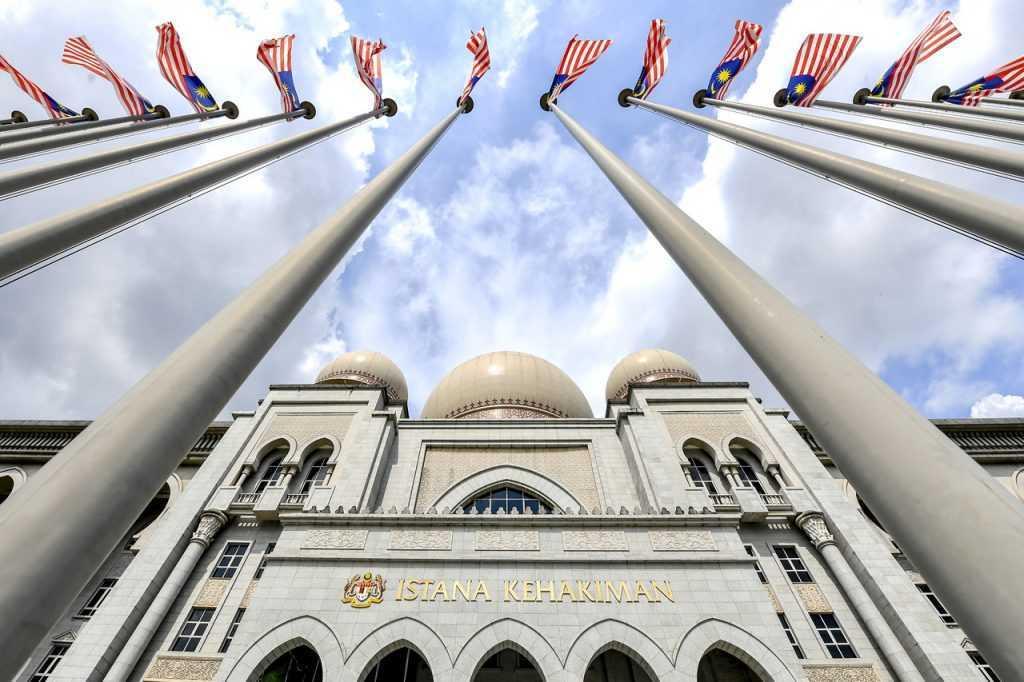High Court was rewriting the law, judge says in appeals court ruling on equal citizenship
Court of Appeal judge says in his written grounds of judgment that the remedy for Malaysian women to obtain citizenship for their children is provided for under Article 15 (2) of the Federal Constitution.
Just In
Only children born overseas to Malaysian fathers who are married to foreign spouses are entitled to citizenship by operation of law, the Court of Appeal held.
Court of Appeal judge Kamaludin Md Said, in his written grounds of judgment for last Friday's 2-1 majority decision disallowing citizenship for children born overseas to Malaysian mothers and foreign fathers, said the word "father" in Section 1(b), Part II of the Second Schedule of the Federal Constitution refers to father only and is not intended to include the mother.
This means it precludes Malaysian mothers who are married to non-Malaysian citizens from passing on their citizenship status to their children who are born outside of Malaysia.
In his grounds of judgment released yesterday, Kamaludin said it was intended by the framers of the Federal Constitution that citizenship by operation of the law for children born on or after Malaysia Day must follow the status of the father.
"In my view, the court should not question why the law was enacted or whether Parliament had addressed its mind in enacting the law. The court's duty is to interpret the enacted law accordingly," he said.
He said the remedy for Malaysian mothers married to foreign spouses to obtain Malaysian citizenship for their children who are born overseas is provided under Article 15 (2) of the Federal Constitution.
Kamaludin said the mothers' grievances were not against the existing law of Article 15 (2) which provides the remedy for them to apply for citizenship for their children, but against the approving authority or system currently in place.
"The system can be improved or changed. I agree this issue needs to be addressed by the relevant authority," he said.
He said it was his view that the High Court was rewriting the law in relation to the granting of citizenship to children born outside Malaysia when it applied the existing law and policy already in force in a manner to find a remedy for the grievances of the mothers by interpreting the word "father" to be read as "mother".
On Friday, the Court of Appeal's 2-1 majority decision by Kamaludin and justice Azizah Nawawi allowed the appeal by the government, home ministry and National Registration Department (JPN) director-general to reverse the High Court's decision declaring that children born overseas to Malaysian mothers married to foreigners are entitled to citizenship by operation of law. Justice S Nantha Balan dissented.
The appeal involved the Association of Family Support & Welfare Selangor & Kuala Lumpur (Family Frontiers) and six Malaysian women who are married to foreigners who sought a court order for all relevant government agencies, including the JPN, immigration department and Malaysian embassies, to issue documents relating to citizenship (including passports and identity cards) to children born abroad to Malaysian mothers with foreign spouses.
On the same day, the appellate court panel also dismissed an appeal by a 24-year-old woman, Mahisha Sulaiha Abdul Majeed, against the High Court's decision in 2020 rejecting her suit for a declaration that she is entitled to be a Malaysian citizen.
In his grounds of judgment, Kamaludin said the parliamentary process is a better way of resolving issues involving controversial and complex questions arising out of moral and social dilemma.
He also said Article 14 (1)(b) of the Federal Constitution and Section 1 (b) of Part II of the Federal Constitution did not constitute gender discrimination against women.
Article 14 (1)(b) states every person born on or after Malaysia Day, fulfilling any of the conditions in Part II of the Second Schedule of the Federal Constitution, is a citizen by operation of law, while Section 1 (b) of Part II of the Second Schedule of the Federal Constitution states that every person born outside the federation whose father is at the time of the birth of a citizen, is a citizen by operation of law.
In the minority judgment ruling in favour of the mothers, Nantha Balan said it was untenable for the government to say that there was no discrimination against Malaysian mothers who are unable to pass on their citizenship to their children born overseas.
"There is no doubt that Article 14 (1)(b), read together with Section 1 (b) of the Second Schedule of the Federal Constitution, is totally and inherently discriminatory of the rights of Malaysian mothers whose children are deprived of citizenship by operation of law solely because their spouses are foreigners and because the children were born overseas," he said.
He said the word "father" in Section 1 (b) Part II of the Second Schedule of the Federal Constitution should be read in a non-discriminatory way to include "mother", as by virtue of Article 8 (2) of the Federal Constitution, it would be unconstitutional to practise gender discrimination by recognising the blood descent of the father but not that of the mother for the purposes of according citizenship to children born overseas.
On Friday, the Court of Appeal panel also ruled that the status quo should be maintained for the overseas-born children of the six Malaysian mothers who had obtained citizenship, pending the disposal of their appeal at the Federal Court.
Subscribe to our newsletter
To be updated with all the latest news and analyses daily.
